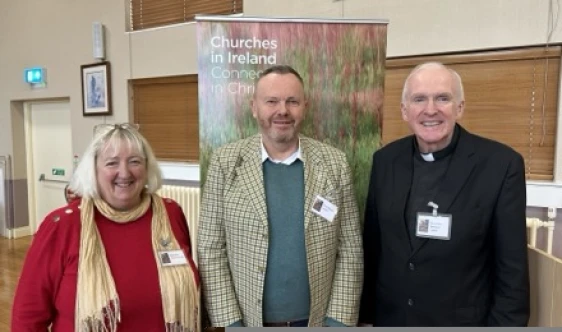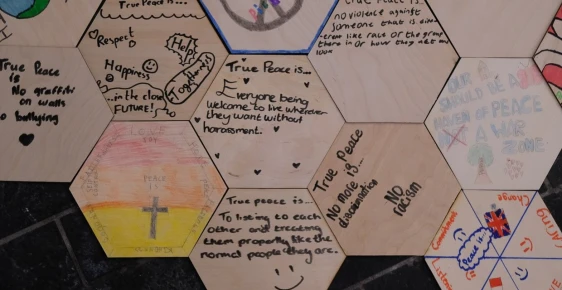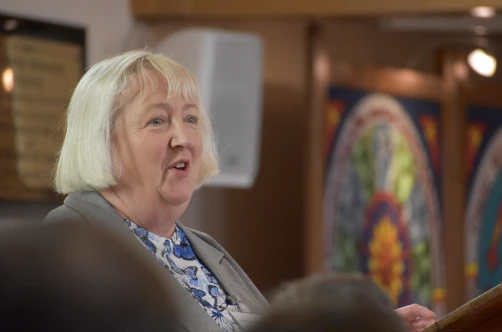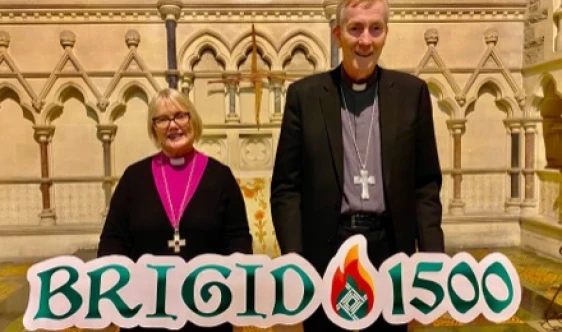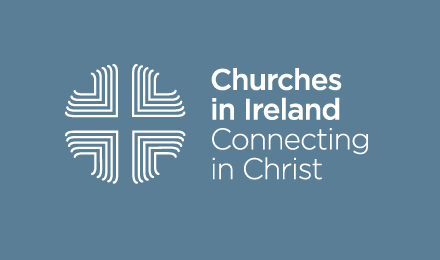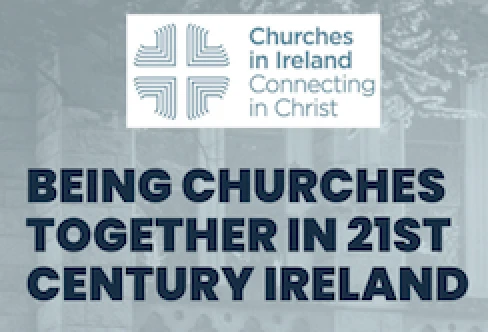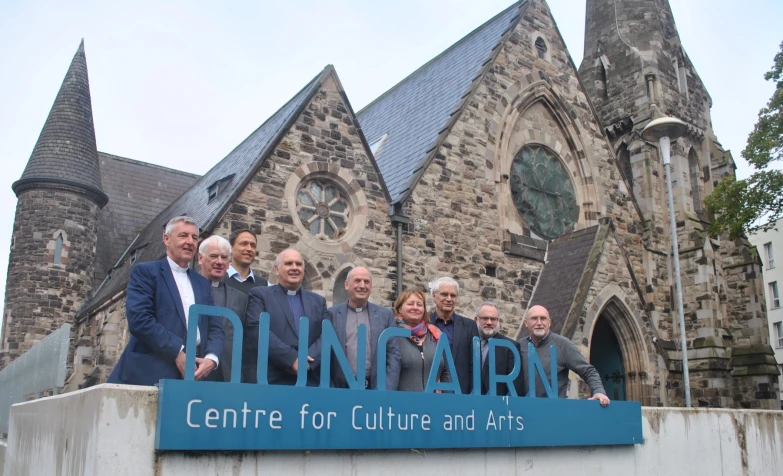
This special event at the Duncairn was organised as part of Good Relations Week.
The morning began with a Church Leaders breakfast. This breakfast is a regular occurrence at the Duncairn with local church leaders meeting to catch up and build relationships. Joining this breakfast were 25 visiting German pastors on a peace and reconciliation study trip to Belfast. Following this was the installation of a piece of artwork that encapsulates the transformation of the Duncairn centre from a Presbyterian church to the multifaceted building it is today. The German clergy were then invited to a question and answer session with the President and General Secretary of the Irish Council of Churches. Other figures in Northern Ireland’s peace and reconciliation process were present such as Fr Gary Donegan and Rev Bill Shaw– the Director of the Duncairn and organiser of the event.
Church Leaders Breakfast
Rev Shaw began the morning by welcoming the German pastors and introducing those present, this included Rev Dr Charles McMullan, the Presbyterian Moderator, Rev Dr Billy Davison, the Methodist President, Most Rev Noel Treanor, Bishop of Down and Connor and Rev Brian Anderson, ICC President. The German Pastors then gave a brief background to their history. Coming from two different areas in Germany, their group dates back to the years of separation due to the Iron Curtain and the Berlin Wall. Every two years, since 1989, they have organised a study trip to learn about the peace processes in other countries. They expressed their interest to learn about the role of the churches in Northern Ireland in the Troubles, the Good Friday Agreement and most recently, Brexit.
The discussion began with some insight into the issues surrounding Brexit, while the added frustration caused by the absence of a functioning government in Northern Ireland at this time was shared. Further to this discussion the question was raised about churches in Northern Ireland praying together on these issues. It was agreed that it is important that churches have the opportunity to do this even at a local level. This sharing with other churches can be done while still holding firm to one’s own beliefs as it encourages the need to understand others. The German pastors were enthused by this and offered an example of where this happens in a local parish between Christians and Jewish people to help build relationships.
Rev Anderson shared the role of the Irish Council of Churches in building these inter–church relationships through assisting in conversations with different Christians to help with difficult issues, such as Brexit. Rev Anderson emphasised the need to encourage local church leaders groups to meet like this for the benefit of their communities. It was highlighted that a recent and significant example of these growing ecumenical relationships was the Presbyterian acceptance of an invitation to the Papal visit at the World Meeting of Families in August.
Installation of the Artwork
This second part of the event began with a short history of the Duncairn Centre from Rev Shaw. He stated that it is fitting that this event take place at the close of Good Relations Week as this is the pinnacle of the work of the Duncairn, with every week being a good relations week. Rev Shaw shared the journey of the Duncairn as a Presbyterian church in a largely Catholic area to a place of shared space where people of any faith and none can come together. Bill then introduced Sara, the cafe manager on site at the Duncairn, to share her insight into the stories of inspiration and positivity that she has seen while working here. Sara spoke of the Duncairn being a hub for people to meet in a open and friendly atmosphere and that this is possible because of the vast courses and workshops run daily at the centre.
Discussion then moved to the artwork that encapsulates this unique building and the inspiration it brings to those who use it. Patrica, a Ulster University student, designed the artwork for an exam piece. Ulster University has a community partnership with the Duncairn and so the brief of her exam was site specific to the centre. Patrica was invited to share her inspiration behind the artwork she created. She shared that she has an interest in the history of Belfast and so she included a map of the city on the artwork while keeping it specific to the centre by printing a timeline of the Duncairn Church alongside a timeline of the Duncairn Community. Although a ceramic piece of art, Patrica highlighted that her interest in the linen industry in Belfast inspired the ‘stitching’ together of the different tiles which gives an effective patchwork aspect.
An opportunity was then given to view the artwork installed in the cafe as a vocal point to share the strength and positivity created in this space.
Q&A with German Clergy
The final aspect of this exciting morning was a question and answer session with the visiting German pastors. Dr Brady began by offering the background of the Irish Council of Churches and the Irish Inter–Church Meeting. Following this, Fr Donegan shared some personal stories of the peace and reconciliation process in Northern Ireland and how the Troubles provided a need for the a church of the street as most violence played out in socially deprived areas. Rev Anderson offered insight into the importance of rebuilding trust in a post conflict area and highlighted that this is often done through joint statements from the main church leaders as a sign of solidarity. It was also shared that the best work in this area of peace and reconciliation is not often publicised. Even so, it is encouraging that Churches and their Christian values are present and trying to shape the new communities of Northern Ireland, post conflict. This encouragement was emphasised; some of the people putting themselves most at risk in the work they do in this area are people of faith.
The visiting German Clergy concluded with words of support for the efforts of peace and reconciliation in Northern Ireland. It was agreed that it is very encouraging to hear about how far the country has come and also important to remember that there is always more work to be done.
Find out more about the Duncairn Centre here: http://www.theduncairn.com
